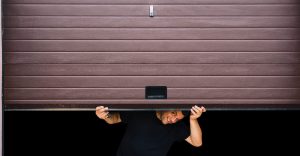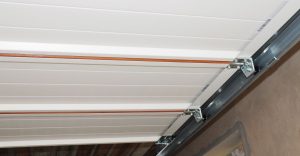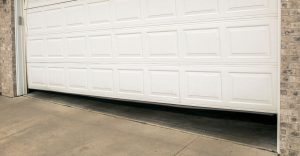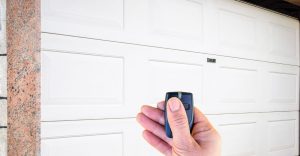Garage Door Replacement, Repair & Installation Company in Toronto
Garage Door Replacement, Repair & Installation Company in Toronto
Options include:
8' x 7' Door
8' x 7' Door with Windows
16' x 7' Door
16' x 7' Door with Windows
After a long day at work, nothing is less delightful than arriving home and having to wait in the car for the garage door to open slowly. One of the numerous possible problems with your garage door is that it moves slowly or, in the worst-case scenario, won’t open at all. It’s reasonable to say that we’ve all encountered annoying garage door issues, from loud operations to uneven motions or sluggish performance. And putting off their repair can just make things worse.
Given that a garage door often opens and closes three to five times a day, appropriate maintenance is crucial to its lifespan. Therefore, to avoid small annoyances turning into big difficulties, you should take immediate action if you’ve observed your garage door acting up or making strange noises.
We’ve outlined some of the most common garage door problems and provided a 2024 repair guide to try as you schedule your trusted service with Smart Doors. It is essential to follow safety protocols and refrain from taking any potentially dangerous actions. With more than 20 years of expertise, lifetime guarantees, and locally built garages, we at Smart Doors take great satisfaction in being the go-to resource for all of your garage door needs. Contact us right now to get a free quote!

Your garage door may have trouble opening or closing for several reasons, including imbalance. Try shutting off the power source and opening the garage door manually to verify its balance as a test. The door is probably balanced if it remains in position. If it doesn’t, though, there could be a different problem at hand: the fuse may be the issue. If every other light in your house is working and the garage door is the only one that’s malfunctioning, the opener may be the cause of the issue. It’s best to get in touch with a professional garage door repair company in this situation. After evaluating the circumstances, they will suggest the best garage door opener, guaranteeing a secure installation.
 Depending on whether your rollers are composed of nylon, steel, or plastic, their lifespan may differ. Like many components, once they age, it’s often best to replace them. Old or rusted rollers could be the primary cause of your garage door malfunction. Before opting for garage doors replacement, try lubricating them to see if that resolves the issue.
Depending on whether your rollers are composed of nylon, steel, or plastic, their lifespan may differ. Like many components, once they age, it’s often best to replace them. Old or rusted rollers could be the primary cause of your garage door malfunction. Before opting for garage doors replacement, try lubricating them to see if that resolves the issue.
Sensors are highly sensitive, so ensure they are not covered or obscured by any objects. Be vigilant in identifying potential problem areas that may obstruct signals when checking your remote and door. These obstructions could include garbage containers, plants, vases, etc.
If nothing is obstructing your sensors, inspect your antenna for any dirt or buildup. The antenna is delicate and may have become misaligned or blocked by debris. A straightforward solution would be to clean it or readjust its position.

An uneven door can result from various factors, often as simple as an obstruction in its path. If you notice your door is uneven, addressing its alignment is essential. One aspect often overlooked is the role rust can play in your door’s functionality. Rust buildup on one side of the door may cause it to move faster than intended, making a thorough cleanup of the area crucial in resolving this issue.
If no rust is evident, the problem may lie within the spring system. In such cases, it’s imperative to contact a professional like Smart Doors to avoid hazards and potential injury. Snapped springs pose a significant danger, so it’s advisable to limit the usage of your door until a professional can assess and address the issue.

The manual can be your best friend when you notice your keypad may not be synced after entering the code. This is a quick fix you can attempt. However, before diving into the manual, check the batteries to ensure they still have power before proceeding further. If you continue to experience issues with your keypad and garage door even after replacing the batteries and consulting the manual, consider reaching out to either the manufacturer or a professional for assistance.
Pay close attention to the motor noises if you see that the motor is still running after the door has stopped moving. This can point to an issue with the limits’ misalignment. To tell the motor when to stop working when the garage door has fully opened or closed, try modifying the restrictions.
Your door may have disengaged from the belt if you discover that it is not moving at all. You must adhere to certain guidelines designed for your installation system. When the emergency release cable is inadvertently pulled, this problem frequently arises.
Your garage door making strange noises might be quite disconcerting! There are a lot of reasons why your garage door might be making clanks, snaps, and crackles. Possible causes include misalignment, rust, loose nuts and bolts, loose chains, rollers, and damaged springs. Even though every problem has a unique sound, it’s best to have an expert check it because the noises might be misleading.
Maintaining a stress-free home atmosphere depends on your garage door’s seamless functioning. Ignoring typical garage door problems, such as slow opening, strange sounds, or misalignment, might eventually cause worse concerns.
We’ve put up a thorough guide to assist with some of the most frequent issues you could run across with garage doors. Our goal is to equip you with the knowledge and skills necessary to tackle small annoyances before they become significant problems, ranging from troubleshooting advice for problems like misaligned doors or faulty sensors to safety measures for motor-related difficulties.